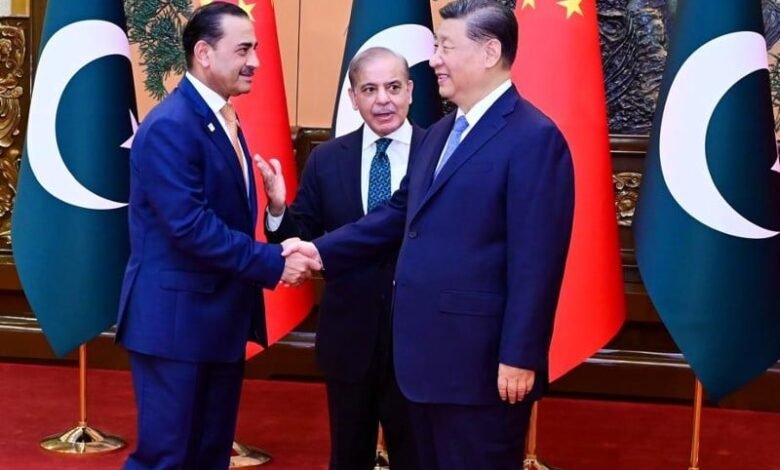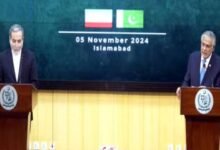
Chief of Army Staff (COAS) General Asim Munir and Chinese President Xi Jinping met each other during the sidelines of a high-level Pakistani delegation’s visit to China, according to reports.
A picture of General Munir shaking hands with the Chinese president, with Prime Minister Shehbaz Sharif standing next to them, has been circulating on social media since end of the Pakistani delegation’s visit.
The delegation included PM Shehbaz Sharif, Deputy Prime Minister and Foreign Minister Ishaq Dar, Finance Minister Muhammad Aurangzeb, Army Chief General Asim Munir and others.
Separately, dozens of businessmen from Pakistan travelled to China to explore new avenues of cooperation with Chinese companies. The government machinery went overboard to promote the prime minister’s visit.
Read more: Pakistan and China sign 23 MOUs aimed at strengthening bilateral ties across multiple sectors
During the visit, Pakistan and China inked 23 Memorandums of Understanding (MoUs) aimed at enhancing collaboration across various sectors.
The MoUs signed in Islamabad included transportation infrastructure, industry, energy, agriculture, media, healthcare, water management, socioeconomic development, and other mutual areas of interest.
Following delegation-level discussions between Prime Minister Shehbaz Sharif and Chinese Premier Li Qiang in Beijing, Foreign Office spokesperson Mumtaz Zahra Baloch briefed the media, emphasising the robust Pakistan-China Strategic Cooperative Partnership founded on mutual trust, shared principles, and strategic governance.
Both nations reiterated staunch support for each other’s key concerns and reaffirmed their dedication to advancing the China-Pakistan Economic Corridor (CPEC) and completing ongoing projects in a timely manner.
PM Shehbaz reassured commitment to ensuring the safety and security of Chinese personnel and projects within Pakistan while safeguarding the CPEC from detractors and adversaries.
Additionally, they agreed to sustain high-level engagements, bolster institutional connections across all sectors, and continue consultations on bilateral and global issues.





